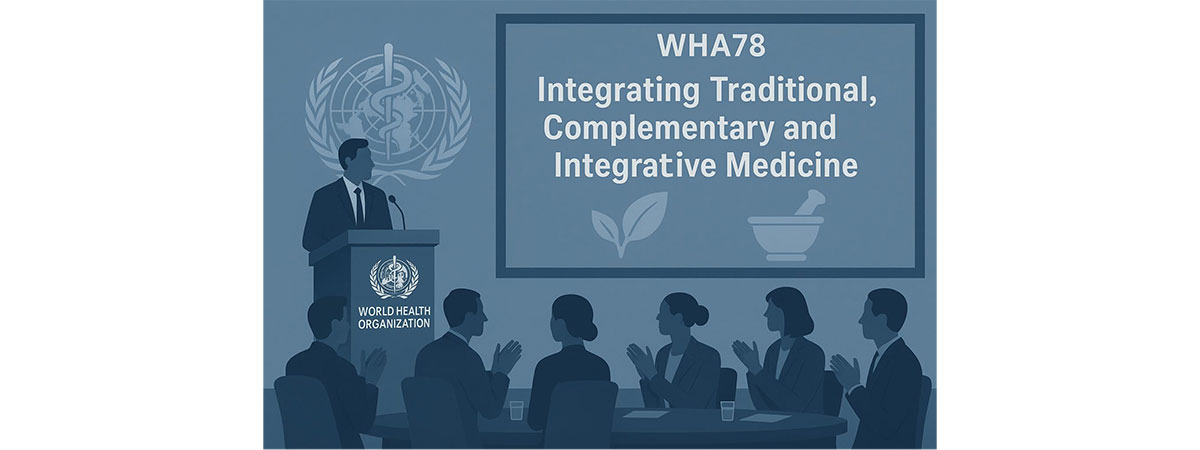WPA Welcomes WHO’s New Global Strategy on Traditional Medicine with a Call for Patient-Centered Integration
The WPA welcomes the adoption of the new WHO Global Traditional Medicine Strategy 2025–2034 by Member States at the Seventy-eighth World Health Assembly 2025 (WHA78), and commends its emphasis on safety, regulation, evidence, and equity.
The new strategy marks a critical step forward in advancing the role of Traditional, Complementary and Integrative Medicine (TCIM) within global health systems, aiming to improve access, quality, and culturally relevant care. Importantly, it recognizes the rights of Indigenous peoples, promotes biodiversity conservation, and supports environmental sustainability in the context of TCIM practices.
Patient Voice Must Guide the Integration of Traditional Medicine
While welcoming the move to build a more evidence-based and regulated approach to traditional medicine, WPA emphasizes that patients must be at the center of its implementation.
“Millions of patients around the world rely on traditional, complementary, and integrative medicine for their primary care,” said Hussain Jafri, CEO WPA. “This new strategy must be implemented with a commitment to patient rights, safety, and informed choice.”
As WHO supports countries in integrating TCIM into health systems, patient engagement must be a foundational pillar, ensuring that services are accessible, understandable, and safe, and that patients are fully informed about treatment options, risks, and outcomes.
Ensuring Safety, Equity, and Access
The WPA particularly welcomes the strategy’s focus on:
Strengthening the evidence base for traditional practices to ensure safety and efficacy;
Developing regulatory frameworks that protect patients and uphold professional standards;
Integrating qualified TCIM practitioners within health systems, where appropriate;
Supporting national implementation and cross-sector collaboration through technical assistance.
However, WPA cautions that integration must not come at the cost of weaker regulation, health misinformation, or unequal access. Clear protocols must be established to monitor quality and protect patients from unsafe or unverified treatments.
A Role for Civil Society and Patient Organizations
WPA urges WHO and Member States to ensure that civil society and patient organizations are meaningfully involved in the design, implementation, and evaluation of the Strategy at all levels. Patients must be empowered to make informed decisions, understand their options, and be confident in the safety and effectiveness of the care they receive whether through modern or traditional approaches.
Looking Ahead
The 2025–2034 strategy reflects a growing global demand for pluralistic and culturally appropriate health care systems. The WPA believes that a balanced, science-informed approach that also honors cultural heritage and patient preferences is essential to achieving universal health coverage (UHC) and the Sustainable Development Goals (SDGs).
As the WHO begins implementation of the Strategy, WPA stands ready to collaborate in ensuring that patient safety, dignity, and autonomy remain at the forefront of traditional medicine integration.


